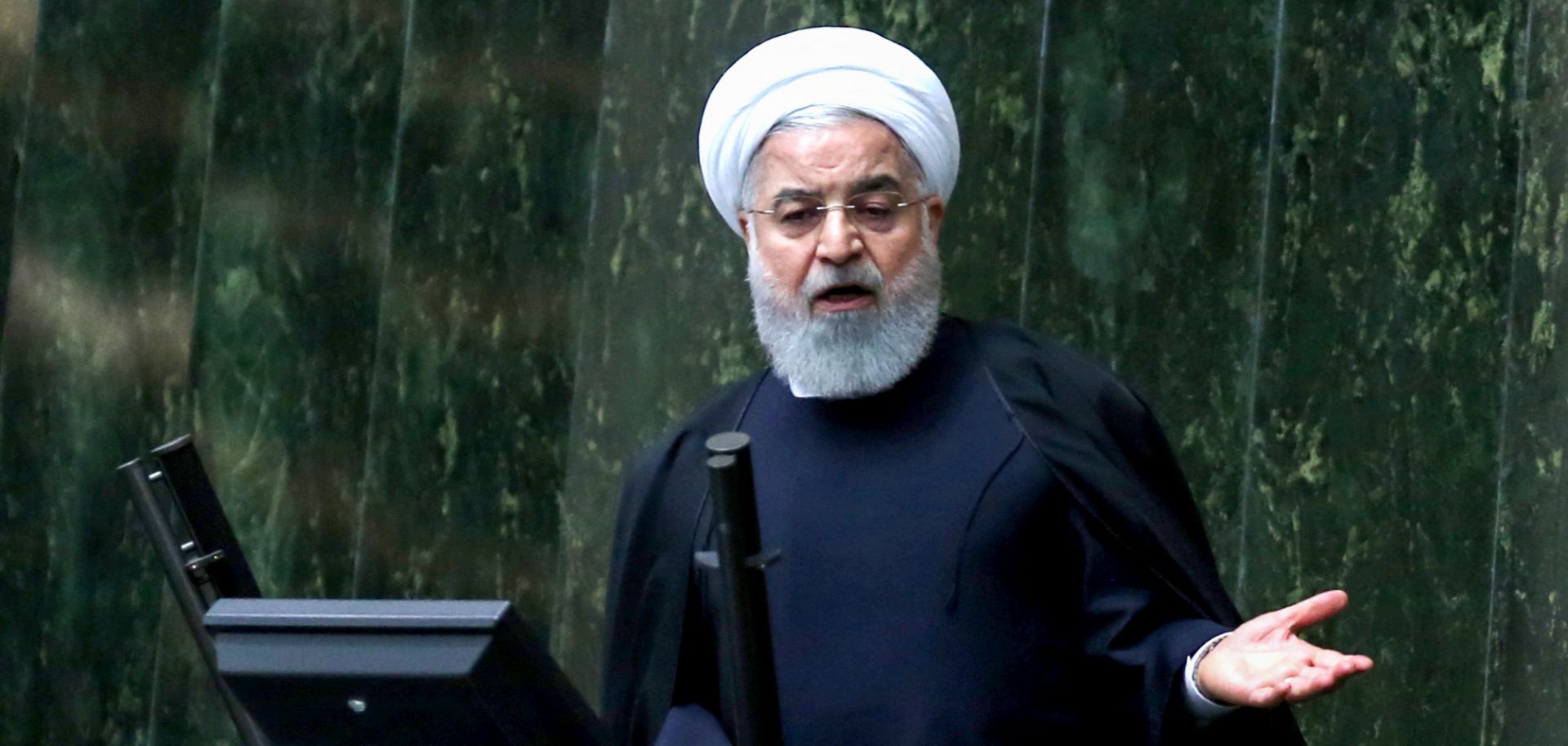GUIDANCE
Iran Is Inching Away From the Nuclear Deal. What Happens Now?
May 8, 2019 | 22:06 GMT

Iranian President Hassan Rouhani, shown here on Feb. 4, 2019, announced on May 8 that Iran would suspend two of the commitments it made under the Iran nuclear deal. Iran's announcement was timed to the one-year anniversary of the U.S. withdrawal from the nuclear deal.
(ATTA KENARE/AFP/Getty Images)
Highlights
- In response to new U.S. sanctions, Iran intends to suspend two of the commitments it made under the Joint Comprehensive Plan of Action, also known as the Iran nuclear deal.
- The United States will likely react by piling on even more sanctions in hopes of putting Iran in an untenable economic position — something increasingly likely if remaining nuclear deal members are unable to provide Iran with aid.
- The result will be an ever more vulnerable military situation across the Middle East, where both sides are preparing in case the escalations lead to conflict.
Subscribe Now
SubscribeAlready have an account?
